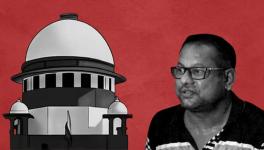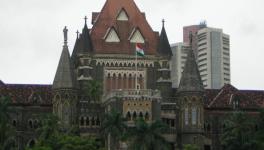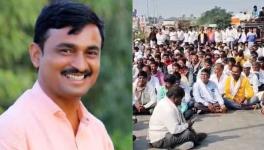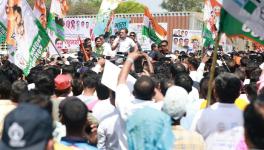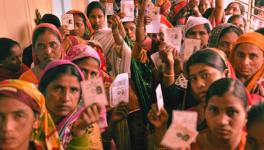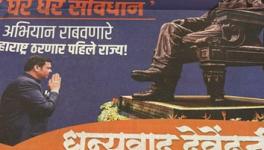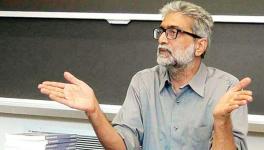Maratha Quota Valid But Should be Cut from 16% to 12-13%, Says HC
Image for representational use only.Image Courtesy : Carvan Daily
Mumbai: The Bombay High Court on Thursday upheld the constitutional validity of reservation for the Maratha community in government jobs and education but said the quota should be reduced from the present 16% to 12 to 13%.
A division bench of Justices Ranjit More and Bharati Dangre said the quota percentage should be reduced as recommended by the State Backward Classes Commission.
The commission in its report earlier recommended 12% quota in education and 13% in jobs.
"We hold and declare that the state government possesses legislative competence to create a separate category of Socially and Educationally Backward Class (SEBC) and grant reservation," the court said.
"We, however, have held that the 16% (quota) should be reduced to 12 to 13%, as recommended by the commission," the bench said.
The court further held that the state's legislative competence is not affected by the amendment to Article 342(a) of the Constitution of India.
As per the 102nd amendment to Article 342(a), reservation can be granted only if a particular community is named in the list prepared by the President of India.
"We conclude that the report submitted by the State Backward Classes Commission was based on quantifiable data and was correct in classifying the Maratha community as socially and educationally backward," the bench said in its judgment.
The court said it was aware the Supreme Court in the past said the quota should not exceed 50%.
"However, in exceptional circumstances, the 50% (limit) can be exceeded if it is based on quantifiable data," the court said.
Soon after the judgment was delivered, the state government told the court that it has already granted admissions in post graduate medical courses under the reservation up to 16%. Government counsel V A Thorat sought permission to let the percentage remain 16% for these courses this year.
The bench asked the government to file a separate application for this.
The court was hearing a bunch of petitions challenging the state government's decision granting 16% reservation to the Maratha community in government jobs and educational institutions.
On November 30, 2018, the Maharashtra legislature passed a bill granting 16% reservation in education and government jobs for the Marathas, declared a socially and educationally backward class by the government.
The reservation will be in addition to the existing 52% reservation in the state.
Several petitions were filed in HC challenging the reservation, while few others were filed in its support.
The court on February 6 commenced hearing in all the petitions and in April closed them for verdict.
The petitioners challenging the quota decision and creation of a separate SEBC category for the Maratha community earlier said it was violative of the Supreme Court orders which say reservation in no state shall exceed 50%.
They said the decision was an "election gimmick and was politically motivated".
The government while defending its decision said it was meant to alleviate the Maratha community, which was "socially and economically" backward. It also denied allegations that Chief Minister Devendra Fadnavis took the decision to appease Maratha voters.
Government counsels Mukul Rohatgi and V A Thorat earlier argued that the creation of SEBC and inclusion of Maratha community in it and the provision of 16% quota cannot be said to be "excessive or disproportionate".
The petitioners, however, claimed that by granting quota to Marathas, the government has given them permanent crutches which they will never be able to shed.
The government destroyed the concept of equality by setting up a special SEBC category for Marathas, they said.
The petitioners also claimed that as per the Maharashtra State Backward Class Commission's report, Marathas and Kunbis are one and the same caste and hence, should be included in the Other Backward Classes (OBCs) category.
In June 2017, the State Backward Class Commission was asked to study the social, financial and educational status of the Maratha community. The panel submitted its report to the government in October 2018, noting that the Maratha community was backward.
The government while justifying the decision argued that it was taken following recommendations of the commission.
"The commission has taken into consideration each and every aspect of the matter and collected requisite and reliable data concerning the social, educational and economical backwardness of the Maratha community," the state said in its affidavit filed in January this year.
"...the commission has then come to the conclusion that the Maratha community is socially, educationally and economically backward," the affidavit said.
The affidavit further claimed that the government was the custodian and regulator of social justice and enacted the Act after recognising the plight of the Maratha community, and that the ceiling of 50% reservation cannot be made applicable to all states.
Get the latest reports & analysis with people's perspective on Protests, movements & deep analytical videos, discussions of the current affairs in your Telegram app. Subscribe to NewsClick's Telegram channel & get Real-Time updates on stories, as they get published on our website.









